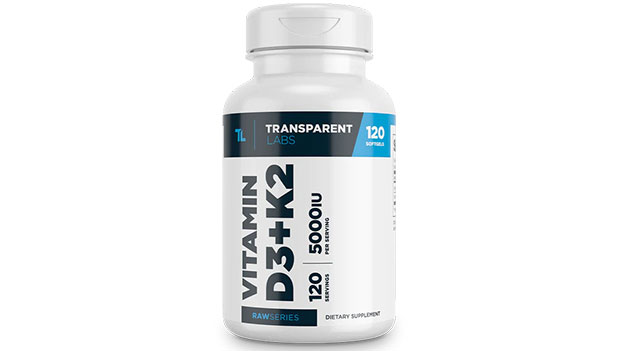
By clicking on the product links in this article, we may receive a commission fee at no cost to you, the reader. Sponsorships and affiliate commissions help support our research so we can help you find the best products. Read the full affiliate disclosure here.
Dopamine is a neurotransmitter or a chemical in the brain that helps with communication. Dopamine plays an important role in the body, helping with processes like behavior and mood regulation, the reward system, sleep, attention, memory, and learning. For this reason, low levels of dopamine can have a negative effect on overall health and wellness.
When you hear "dopamine supplements," you may think these are supplements that contain dopamine, but this isn't the case at all. Dopamine supplements are actually just different types of vitamins and supplements that naturally help to boost dopamine levels. There are a variety of different natural supplements that can be taken to help increase dopamine levels. Below, we're sharing an overview of some of the best dopamine supplements.
The Best Dopamine Supplements - Our Top Picks
- Vitamin D
- Probiotics
- Caffeine
- Curcumin
- Fish Oil
- Ginkgo Biloba
- Magnesium
- L-Tyrosine
- Vitamin C
- Ginseng
Why Trust Us?
The health and safety of ACTIVE's readers is of the utmost importance to us. To ensure your well-being when consuming dietary supplements, the ACTIVE.com editorial team prioritizes products that are independently tested by a third party. We've consulted with a team of nutritionists and dieticians to ensure the products we feature are of the highest standard. This helps us create the most accurate, authentic review content for our readers.
Vitamin D
SPECS
- Types: Gummies or capsules
- Dosage: Varies
- Certifications: United States Pharmacopeia (USP) Verified
CHECK PRICEVitamin D plays a number of different roles in the body, influencing inflammation and the immune system. There are two different types of vitamin D: vitamin D2 and vitamin D3. Vitamin D is made in the skin from exposure to sunlight. Vitamin D deficiency is incredibly common, affecting almost 50% of the world's population.
Vitamin D levels can be increased by getting the right amount of sun exposure and by supplementing vitamin D with an oral supplement. Vitamin D can also affect dopamine levels and may positively influence individuals who suffer from depression.
Current studies imply that vitamin D supplementation may positively influence dopamine levels in individuals who have a vitamin D deficiency, but it may not influence individuals who have sufficient vitamin D levels.
What We Like
- Gummy option for anyone who can't swallow pills
- Multiple different strength options (125 mcg, 25 mcg)
- Affordable pricing
What We Don't Like
- May cause mild side effects like headache and nausea
- Some stronger concentrations are higher than the recommended daily value—talk with your doctor about a recommended dosage
Probiotics
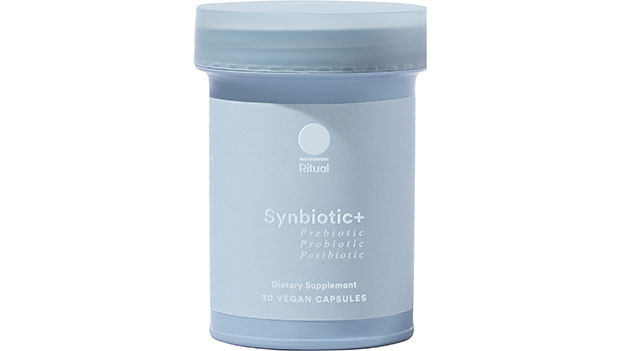
SPECS
- Types: Gummies, capsules, liquid
- Dosage: Varies
- Certifications: Third-party lab testing
CHECK PRICEProbiotics are supplements that help to boost the amount of "good bacteria" found in the gut.
Some experts refer to the gut as a second brain in the body, given that it contains over 100 million nerve cells. For this reason, keeping the gut healthy can have an overall positive impact on your health and body.
Some studies have found that probiotics may be able to improve dopamine levels in addition to all of the other potential benefits they offer.
What We Like
- Many different forms to choose from (liquid, gummies, capsules)
- Proven health benefits
- Easy to incorporate into a daily routine
What We Don't Like
- Can become expensive when taken regularly
- You may experience some digestive discomfort at first while your body gets used to it.
Caffeine
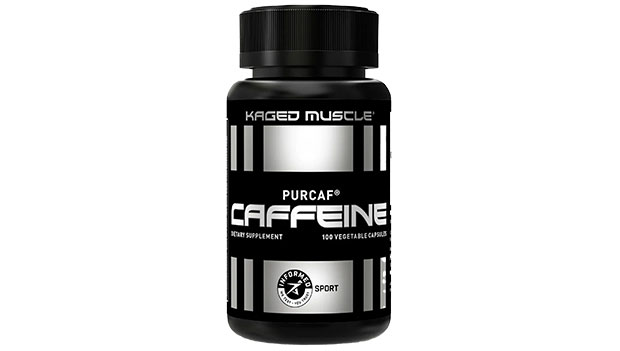
SPECS
- Types: Capsules
- Dosage: Varies
- Certifications: Third-party lab testing
CHECK PRICE80% of adults in the United States consume caffeine on a daily basis. Caffeine has been found to increase dopamine levels in the brain with its effect on D2/D3 receptors. Because the human body can build up a tolerance to caffeine, it can make the effects less powerful when consumed on a daily basis.
If you already consume caffeine in the form of coffee or energy drinks, then you should proceed with caution when taking a caffeine supplement. You'll want to limit other sources of caffeine in your diet before taking a caffeine supplement with it or replace the caffeine you drink with a caffeine supplement.
What We Like
- Can improve mood and energy levels
- Many different affordable options
- Easy to take daily
What We Don't Like
- You can build a tolerance over time
- Not a great option if you already drink caffeine daily
Curcumin
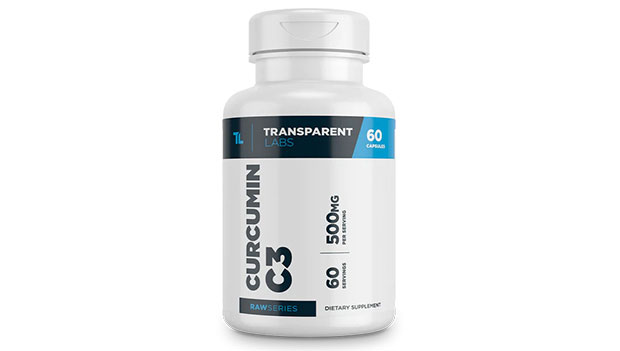
SPECS
- Types: Capsules, powders
- Dosage: Varies
- Certifications: Gluten-free, vegan, and non-GMO
CHECK PRICECurcumin is the active ingredient found in turmeric. Curcumin helps to modulate the release of dopamine, having a positive effect on mood and possibly even offering antidepressant properties.
There are many different benefits to taking curcumin, including the management of oxidative and inflammatory conditions, anxiety, arthritis, metabolic syndrome, and hyperlipidemia. Curcumin can also be beneficial for active individuals to take since it helps to improve recovery from exercise-induced inflammation and muscle soreness.
Curcumin alone is poorly absorbed when taken alone but becomes more bioavailable when combined with black pepper.
What We Like
- A very natural and safe supplement
- Proven benefits
- Affordable price point
What We Don't Like
- Some brands require you to take up to 3 capsules daily
- Won't be absorbed well if it doesn't have black pepper added
Fish Oil
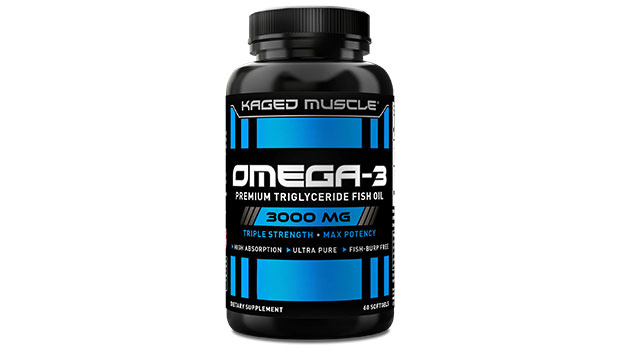
SPECS
- Types: Capsules
- Dosage: Varies
- Certifications: Purified to eliminate mercury, free from shellfish, gluten, lactose, sugar, artificial colors, and sweeteners
CHECK PRICEFish oil is a dietary supplement that contains two types of omega-3 fatty acids. These fatty acids are a type of polyunsaturated fatty acids (PUFAs). PUFAs have been studied for their effects on dopamine and their potential antidepressant effects.
Many people take fish oil capsules daily as a dietary supplement, along with other daily vitamins. This study used rats to look at the effects of fish oil on dopamine levels. It found that dopamine levels in rats were increased following fish oil supplementation when compared with the placebo.
What We Like
- Affordable price point
- Lots of different strength options
- Proven positive effects on dopamine levels in animal studies
What We Don't Like
- Larger capsules can be difficult to swallow
- May have a fishy aftertaste
Ginkgo Biloba
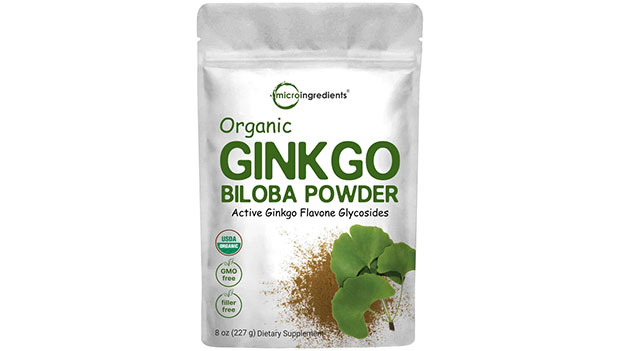
SPECS
- Types: Capsules or liquid
- Dosage: 1-2 capsules daily
- Certifications: Third-party lab testing
CHECK PRICEGinkgo biloba is a plant-based extract that is often taken to help with focus, learning, and memory. Ginkgo is native to China and is actually one of the oldest living tree species in the world. Although further research is still needed to make any claims for ginkgo's ability to treat health conditions, it has been widely studied for its benefits for individuals with dementia.
One study found that ongoing dosing of ginkgo increased dopamine levels in rats. This study noted that a single dose of ginkgo had no effect on dopamine levels, but the chronic treatment did have a positive effect.
As with any supplement, there are potential side effects to using ginkgo. According to this study, ginkgo may increase the risk of seizures in individuals who are prone to epileptic seizures.
What We Like
- Choose from a pill or liquid form
- Many users had positive results
- Multiple different strength options (regular or extra strength)
What We Don't Like
- The capsules are large and can be hard to swallow
- Presents a risk for individuals with epilepsy
Magnesium
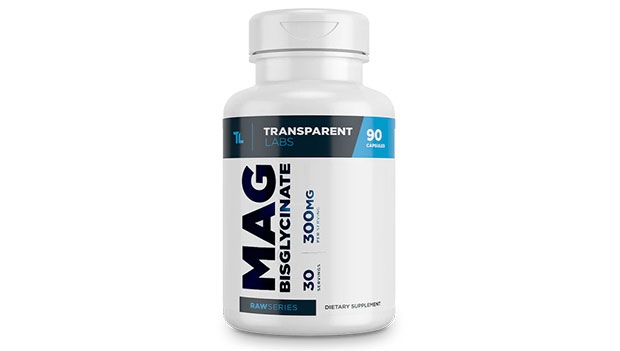
SPECS
- Types: Drink powder, capsules, liquid, topical
- Dosage: Varies
- Certifications: High-Quality TRAACS (The Real Amino Acid Chelate System patented lab validation method)
CHECK PRICEMagnesium is an essential nutrient that most people get from food. Many people could benefit from adding magnesium supplementation to their routine. About 20% of the population consumes less than the recommended amount of daily magnesium.
Magnesium is required for overall health and specifically affects the brain in a number of ways. One study that looked at the effects of magnesium on mice found that magnesium could have potential antidepressant effects. Part of why magnesium had this effect was due to its effect on the dopamine receptors in the brain.
Magnesium supplements vary. Some magnesium comes in the form of capsules, while others are in a powder form that you mix with liquid and drink. Magnesium may make you feel tired, so it's good to drink it in the evening before bed.
What We Like
- Some options are very affordable
- Many different ways to take it
- Benefits overall health
What We Don't Like
- There are many different types of magnesium, so it may require some research to find the best option for you
- Some users found magnesium to be ineffective for them
L-Tyrosine
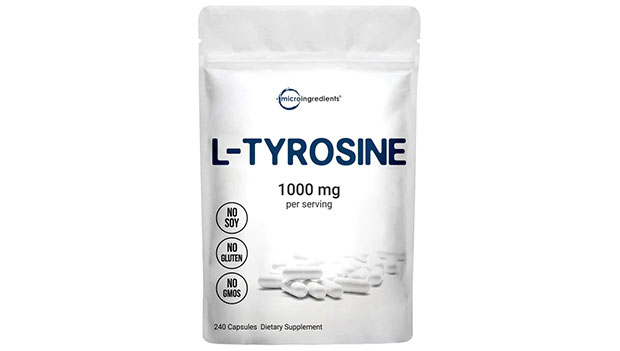
SPECS
- Types: Capsules, gummies
- Dosage: 1 capsule daily
- Certifications: Manufactured In a GMP Compliant, FDA Registered Facility
CHECK PRICEL-tyrosine is a type of amino acid that is made in the body. L-tyrosine is derived from another amino acid called phenylalanine. L-tyrosine plays an important role in the production of neurotransmitters such as dopamine, norepinephrine, and epinephrine.
The effects of L-tyrosine on stress have been studied because it has an effect on catecholamines or stress hormones. As a precursor to catecholamines, L-tyrosine causes an increase in these hormones. Because stressful experiences cause stress hormones to be released, stress hormones can become depleted during stress. L-tyrosine can help the body physically adapt to chronic stress. It has been studied to help with military training programs and may not be entirely useful for the everyday person to take.
What We Like
- Easy to incorporate into a routine with a one-capsule dosage
- Affordable
- Choose from gummies or capsules
What We Don't Like
- Long-term effects need further research
- Doesn't work for everyone
Vitamin C
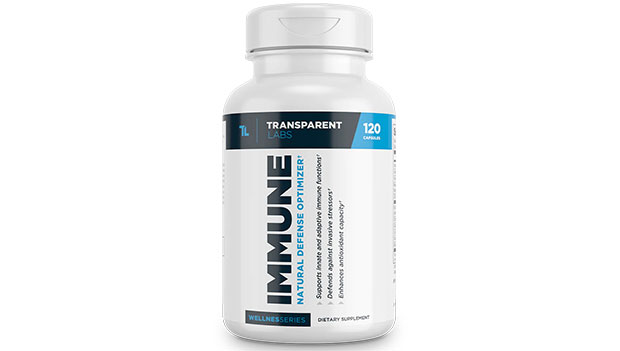
SPECS
- Types: Capsules, gummies, drink powders
- Dosage: Varies
- Certifications: No color added, no artificial flavors, no added preservatives, gluten-free
CHECK PRICEMany people know of vitamin C as a vitamin that helps with immune function. We get vitamin C through certain foods like oranges and strawberries. Taking extra vitamin C can give the body an extra boost of antioxidants and is a popular choice for individuals who are fighting off sickness.
Vitamin C also has effects on the brain and mood. One study found that vitamin C deficiency was associated with decreased levels of dopamine as well as other neurotransmitters like norepinephrine.
What We Like
- Benefits the body in many different ways
- Lots of different types (gummies, capsules, drink powders)
- Many affordable options
What We Don't Like
- Higher dosages won't be fully absorbed
- Synthetic options won't absorb as well as natural food-based options
Ginseng
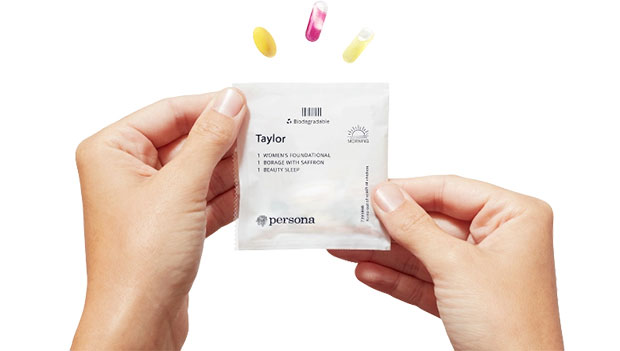
SPECS
- Types: Liquid, capsules
- Dosage: Varies
- Certifications: Gluten-free, non-GMO, all-natural
CHECK PRICEGinseng is derived from a root vegetable. Ginseng has traditionally been used in Chinese medicine for a number of different purposes, including improving memory, supporting immune function, and even relieving anxiety and depression.
Some studies have found that ginseng has a positive effect on cognition. It has even been tested for its positive effects on children with ADHD. Part of how ginseng works on the brain and body may be related to its effects on the dopamine receptors of the brain.
What We Like
- Traditionally used in Chinese medicine
- Affordable options
- Improves energy levels and focus
What We Don't Like
- Higher strength options come at a high price point
- With so many different types of ginseng, it may require some research to figure out which type works best for you
What to Look for in Dopamine Supplements
When shopping for a dopamine supplement, you'll want to take some factors into consideration. There are many different types of supplements that can help to boost your dopamine levels. Some factors to consider when shopping for a dopamine supplement include certifications and ingredients. There are also some foods that can naturally help boost dopamine levels, which we will discuss further below.
Certifications
Did you know that most vitamins and supplements are not FDA approved? For this reason, you should always pay close attention to the safety certifications of different medications before purchasing them. Because most vitamins and supplements are not FDA-approved, they often undergo a third-party lab test to ensure that they contain the stated ingredients. When shopping for dopamine supplements, always make sure to choose a supplement that has third-party lab tests and safety certifications.
Ingredients
Because there are a wide variety of different supplements that can help to increase dopamine levels, the ingredients that these supplements contain varies greatly. You may be interested in using probiotics or a vitamin C supplement to help boost your dopamine levels. Either way, always examine the ingredient label closely to look out for any unnecessary or unhealthy additives. If you choose to use a gummy vitamin, then you can expect to see added sugar and natural or artificial flavors added.
Foods that Boost Dopamine Production
You can naturally boost your dopamine levels by eating certain foods. Some foods contain L-tyrosine, which can naturally increase dopamine levels by giving your body what it needs to synthesize dopamine. Foods that naturally contain L-tyrosine include all animal products, almonds, apples, avocados, bananas, beets, green tea, lima beans, oatmeal, and watermelon.
FAQs About Dopamine Supplements
What is the fastest way to increase dopamine?
There may not be one fast method to increase dopamine levels. You can naturally increase dopamine levels by making certain lifestyle choices, such as eating a balanced diet and exercising regularly. Eating a high-protein diet, eating less saturated fat, taking probiotics, and exercising regularly are all effective ways to quickly increase your dopamine levels.
Does vitamin B12 increase dopamine?
Yes, vitamin B12 can increase dopamine levels by acting as a cofactor in the synthesis of dopamine, as well as serotonin. For this reason, vitamin B12 deficiency has been studied as a potential cause of certain mood disorders, such as OCD and anxiety.
What are the symptoms of low dopamine?
Dopamine deficiency may manifest as a lack of motivation, increased tiredness, poor concentration, moodiness, anxiety, or feelings of depression. There are many different reasons why a person may experience a dopamine deficiency. Work with your doctor to figure out a treatment plan if you think you may be struggling with a dopamine deficiency.
These statements have not been evaluated by the Food and Drug Administration. This product is not intended to diagnose, treat, cure, or prevent any disease.



